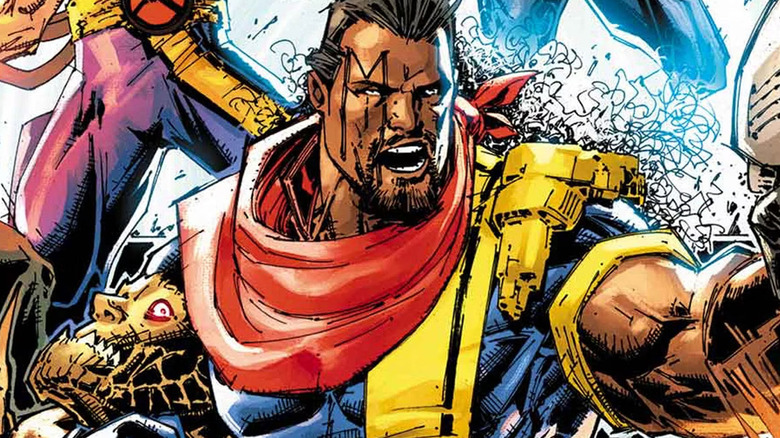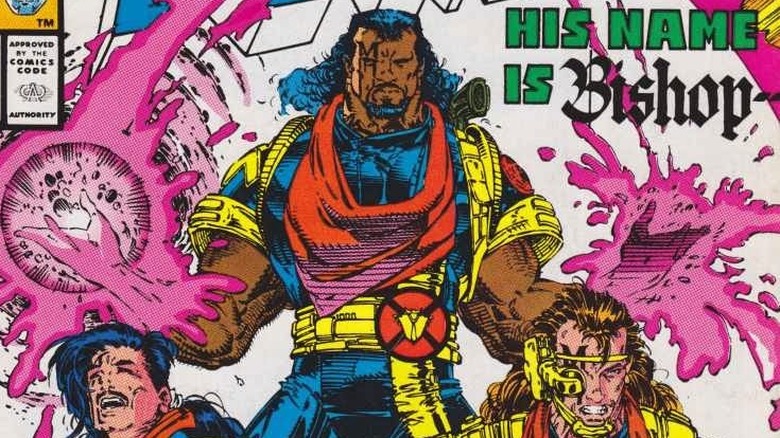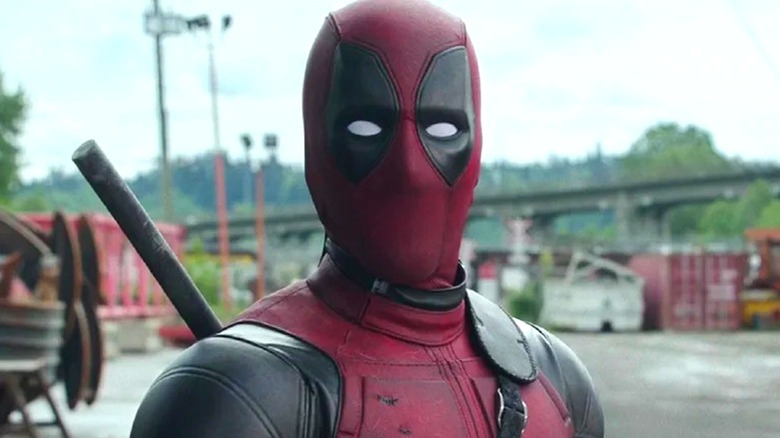X-Men Theory: Time Travel Brings Mutants To The MCU (But Not The Way You Think)
The X-Man known as Bishop might be the unlikely key to bringing mutants to the Marvel Cinematic Universe, with the hero's time-traveling prowess potentially being the solution to changing Earth-199999 in a major way.
Lucas Bishop, codenamed Bishop, debuted in "The Uncanny X-Men" #282 as a co-creation of Whilce Portacio and John Byrne. Bishop originally came from a dystopian alternate future that was created when a version of Hope Summers killed millions of humans during what is known as the Six Second War. In the wake of that event, Bishop and the other surviving mutants were housed in concentration camps, while teams such as the X-Men were killed or forced into hiding in a world where mutants were once again viewed as mankind's biggest enemies. The mutants eventually mount a rebellion, with Bishop and others joining the X.S.E. (X-Treme Sanctions Executive), a police force formed in order to prevent mutantdom from going extinct. However, when one of their own, a mutant known as Trevor Fitzroy, turns on them and travels to the present day, Bishop chases him through time, where he will eventually join the X-Men. He quickly becomes a valuable member and even assumes a leadership position on the team.
Considering Bishop is no stranger to finding himself in time-travel quandaries, he has the potential to provide the perfect path for the X-Men's arrival in the present-day MCU, and his time-travel adventures highlight why.
How Bishop has changed the X-Men's timelines
While Bishop's mutant power is energy manipulation and projection, he's also armed with time-travel technology that gives him the ability to change, erase, and add new histories to Marvel's main timeline.
In the classic "Age of Apocalypse" storyline, the mutant Legion travels back in time to murder Magneto to prevent his future actions, but he inadvertently kills his father, Charles Xavier, instead, leading to the birth of a new timeline. Only one mutant realizes this reality, where Apocalypse is in control of the universe, isn't what it's supposed to be: Bishop. The time-traveling mutant manages to convince his fellow mutant heroes that things aren't as they should be, leading him into direct conflict with Apocalypse, who aims to keep his rule intact. Despite Apocalypse's power, Bishop is ultimately successful in restoring the true timeline.
In the "Messiah Complex," Bishop tries to prevent his own timeline from coming to pass after Hope Summers is born in the present day. His quest to change his own history leads him to the future, where he fights Cable and attempts to kill Hope before ultimately failing in his attempts and being sent to a desolate reality, thousands of years in the future. After barely surviving in that timeline, he is eventually brought back to the present day, where he decides killing Hope isn't the right move and opts to end his life's mission. Since then, he's been a vital member of the X-Men and was even named one of the Four Great Captains of Krakoa while helping lead the Marauders before the "Fall of X."
How Bishop could change the MCU
Both the Fox Marvel Universe and Marvel Cinematic Universe have leaned heavily on time travel as a plot device. In "Deadpool 2," Cable returns to the main timeline to kill Firefist and prevent the death of his wife and daughter. Meanwhile, in "Loki," the Time Variance Authority closely monitors and protects the MCU's sacred timeline. With the time-traveling villain Kang the Conqueror (and his variants) being set up as the big villain for Phase Six of the MCU, Bishop might very well be the means through which the X-Men join Marvel's main film universe.
Using his time-traveling capabilities, the MCU could take cues from some of the mutant's comic book storylines and have his interference lead to mutants arriving on Earth-199999. "Deadpool 3" is teasing the Merc with a Mouth mowing through the old Fox timeline and its characters, after all, so Bishop's tendency to attempt to rewrite history could help send him (and other mutants) to the main timeline once the old universe is destroyed. If reports that the TVA is involved in the film prove to be true, nothing appears off the table.
Bishop already appeared in "X-Men: Days of Future Past," where he was played by "Lupin" actor Omar Sy. Bringing Sy back doesn't seem like it would be too much of a stretch to make happen, and with Bishop's history of being responsible for both participating in and fixing time variances, he could be the key to the X-Men's sudden existence in the MCU, whether in "Deadpool 3" or another film. While it remains to be seen if Marvel will utilize Bishop's time-traveling potential, having the option to use him to cause a domino effect of change seems like a storyline worth exploring.


